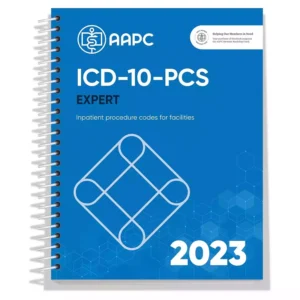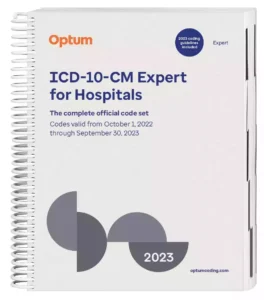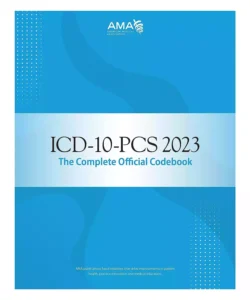Coughing is a common symptom that can be caused by various underlying conditions. In the world of medical coding and classification, International Classification of Diseases, 10th Edition (ICD-10) codes play a crucial role in accurately documenting and billing for healthcare services related to cough. In this article, we will delve into the realm of cough ICD-10 codes, shedding light on their importance and usage in the healthcare industry.

The Significance of ICD-10 Codes
What Are ICD-10 Codes?
ICD-10 codes, short for International Classification of Diseases, 10th Edition, are alphanumeric codes used by healthcare providers, insurance companies, and medical coders to classify and record diagnoses and medical conditions. These codes serve as a universal language in the healthcare world, ensuring standardized documentation and billing procedures.
Why Are They Important for Cough?
When a patient presents with a cough, healthcare professionals need to determine the cause and severity of the cough accurately. Cough ICD-10 codes provide a structured way to classify and record the underlying condition responsible for the cough. This ensures that patients receive appropriate treatment and that healthcare providers are reimbursed correctly.

Common Cough ICD-10 Codes
1. Cough ICD-10 Code: J44.0
Chronic Obstructive Pulmonary Disease with Acute Lower Respiratory Infection
Chronic Obstructive Pulmonary Disease (COPD) is a progressive lung condition characterized by chronic inflammation of the airways and obstruction of airflow. It primarily includes two major conditions: chronic bronchitis and emphysema. Individuals with COPD often experience symptoms such as shortness of breath, chronic cough, and increased production of mucus.
Now, let’s break down the Cough ICD-10 code J44.0:
J44:
- This portion of the code falls under the broader category of “Other chronic obstructive pulmonary disease.” In ICD-10, diseases and conditions are categorized into chapters, and J44 falls under Chapter X (Diseases of the Respiratory System). This chapter includes various codes related to respiratory conditions.
0:
- The “0” at the end of the code represents the subcategory or the level of specificity. In this case, “0” specifies a scenario where a patient with COPD has developed a particular complication.
So, when a patient with COPD experiences an additional health issue, specifically an Acute Lower Respiratory Infection, and this infection leads to symptoms like coughing and worsens their respiratory symptoms, healthcare providers use the code J44.0 to document this condition.
An acute lower respiratory infection refers to infections affecting the lower parts of the respiratory system, which includes the lungs and bronchial tubes. These infections can be caused by various pathogens, such as viruses or bacteria, and they often lead to symptoms like coughing, increased mucus production, shortness of breath, and chest discomfort.
Summary:
Using the Cough ICD-10 code J44.0, is crucial for accurate medical documentation and billing. It helps healthcare providers keep track of the patient’s complex medical history, allows for appropriate treatment planning, and ensures that insurance claims and billing processes are conducted accurately, which ultimately benefits both the patient and the healthcare provider.
2. Cough ICD-10 Code: J45.909
Unspecified Asthma, Uncomplicated
Asthma is a chronic respiratory condition characterized by inflammation of the airways, which can lead to breathing difficulties, coughing, wheezing, and chest tightness. When healthcare professionals encounter a patient with asthma-related symptoms, they use a specific coding system to accurately document and classify the condition. In this case, we’re focusing on the Cough ICD-10 code J45.909.
J45:
- This portion of the code falls under the broader category of “Asthma.” Just like in the case of COPD, diseases and conditions are categorized in ICD-10, and this code falls under Chapter X (Diseases of the Respiratory System), specifically under the section dedicated to asthma.
909:
- The “909” at the end of the code signifies a level of specificity. In this context, “909” denotes that the asthma condition being documented is unspecified. This means that, at the time of diagnosis, the healthcare provider does not have enough information to classify the type or severity of the asthma.
Now, let’s delve into what “Unspecified Asthma, Uncomplicated” means:
Unspecified Asthma:
- This term indicates that the healthcare provider has diagnosed the patient with asthma, but they have not specified whether it’s allergic asthma, exercise-induced asthma, occupational asthma, or any other specific subtype of asthma. This could be due to the initial presentation of symptoms not providing enough information for a more precise classification.
Uncomplicated:
- Uncomplicated suggests that, at the time of diagnosis, there are no other significant medical conditions or complications associated with the asthma. It means that the patient’s asthma symptoms are not exacerbated by other health issues, such as infections or pre-existing lung conditions.
Summary:
In essence, when a patient presents with symptoms indicative of asthma, but the exact type or subtype of asthma is not clear during the initial evaluation, healthcare providers use the Cough ICD-10 code J45.909 to document the condition. This code serves as a placeholder, allowing for the provision of immediate treatment while further tests and evaluations are conducted to pinpoint the specific type of asthma the patient has. Once additional information becomes available, a more precise code can be assigned.
3. Cough ICD-10 Code: R05
When a patient experiences a cough, it can be caused by a wide range of factors, including infections, allergies, irritants, or even underlying medical conditions. In the context of medical coding, the ICD-10 code system provides a structured way to document and classify health conditions, including coughs. “R05” is a specific code within this system used to denote cough when certain details about the cough are not yet known or when the cough does not fit into a more specific category.
Here’s a breakdown of what “Cough ICD-10 Code: R05 represents:
R05: This portion of the code is part of the ICD-10 system and is used for documenting symptoms related to the respiratory system. In this case, it is used to represent the symptom of “Cough.”
So, let’s explore the significance of the “Cough ICD-10 Code: R05 – Cough”:
General Code for Cough:
- “R05 – Cough” serves as a general code that healthcare providers use when a patient presents with a cough, but the underlying cause of the cough is not yet determined. It’s essentially a placeholder code that indicates the presence of a cough as a symptom without specifying its origin.
Acute Cough:
- “R05 – Cough” is often used for acute coughs. An acute cough is a sudden and short-term cough that is usually caused by respiratory infections like the common cold or the flu. Since these types of coughs are often temporary and their underlying cause can be attributed to viral infections, it may not be necessary to provide a more specific diagnosis at the outset.
Summary:
In summary, Cough ICD-10 code “R05 – Cough” is a code used when a patient is experiencing a cough, but the healthcare provider hasn’t determined the exact reason behind it or when the cough is associated with a short-term illness. This code helps in the initial documentation of the symptom, allowing for treatment and monitoring, and if necessary, a more specific diagnosis can be added once the underlying cause becomes clear through further evaluation and testing. Proper coding ensures that healthcare records are accurate and that patients receive the appropriate care for their condition.

4. Cough ICD-10: J98.8
Other Specified Respiratory Disorders.
Respiratory disorders encompass a wide range of conditions that affect the lungs and airways, often leading to symptoms such as coughing, difficulty breathing, and chest discomfort. In the context of medical coding using the ICD-10 system, “J98.8” is a specific code used when a patient has a respiratory disorder that doesn’t fall under any of the more specific codes available.
Here’s a breakdown of what Cough ICD-10 Code “J98.8 – Other Specified Respiratory Disorders” signifies:
J98.8: This is a code within the ICD-10 system, falling under Chapter X (Diseases of the Respiratory System). It is used to document and classify respiratory disorders that don’t have a more precise code available within the system.
Now, let’s explore the significance of Cough ICD-10 Code “J98.8 – Other Specified Respiratory Disorders”:
Non-Specific Respiratory Disorders:
- “J98.8” serves as a catch-all or “miscellaneous” code for respiratory conditions that are not covered by the more specific codes in the ICD-10 system. These conditions may be relatively rare or less common, making it necessary to have a code that can encompass a variety of respiratory disorders.
Various Respiratory Conditions:
- Respiratory disorders can encompass a wide spectrum of diseases, including interstitial lung diseases, lung infections, non-specific inflammatory conditions, and more. “J98.8” is used when the specific diagnosis for the respiratory disorder causing the patient’s cough is not available in the coding system.
Summary:
In summary, Cough ICD-10 code “J98.8 – Other Specified Respiratory Disorders” is a code utilized when a patient presents with a cough that is a result of a respiratory disorder, but the specific diagnosis or condition falls outside the scope of more detailed codes. This code allows healthcare providers to document the presence of a respiratory disorder and associated symptoms like coughing, ensuring accurate medical records and proper billing. It acknowledges the diversity of respiratory conditions and provides a means to classify them when a more specific code is not applicable.
5. Cough ICD-10 Code: J40
Bronchitis, Not Specified as Acute or Chronic.
Bronchitis is a respiratory condition characterized by inflammation of the bronchial tubes, which are the air passages that carry air to and from the lungs. It can manifest in two main forms: acute bronchitis and chronic bronchitis. In the context of medical coding using the ICD-10 system, “J40” is a specific code used when a patient has been diagnosed with bronchitis, but the specific type (acute or chronic) has not been identified.
Here’s a breakdown of what Cough ICD-10 code “J40 – Bronchitis, Not Specified as Acute or Chronic” signifies:
J40: This is a code within the ICD-10 system, falling under Chapter X (Diseases of the Respiratory System). It is used to document and classify bronchitis when the specific type is not yet determined.
Now, let’s explore the significance of Cough ICD-10 code “J40 – Bronchitis, Not Specified as Acute or Chronic”:
Unspecified Bronchitis:
- “J40” is employed when a healthcare provider diagnoses a patient with bronchitis, but they have not yet determined whether it is acute or chronic. Bronchitis is categorized into these two types based on the duration and severity of symptoms, with acute bronchitis being short-term and chronic bronchitis being a long-term condition.
Temporary Classification:
- Sometimes, when a patient initially presents with bronchitis symptoms, it may be challenging to immediately discern whether the condition will resolve quickly (acute) or persist over time (chronic). Therefore, “J40” serves as a temporary classification until further assessments or follow-up visits provide enough information to specify the type.
Summary:
In summary, Cough ICD-10 code “J40 – Bronchitis, Not Specified as Acute or Chronic” is a code used when a patient is diagnosed with bronchitis, but it is unclear whether the condition is acute or chronic at the time of diagnosis. This code allows for immediate documentation and treatment of bronchitis while leaving room for healthcare providers to specify the type once more information becomes available through ongoing evaluation and monitoring. Proper coding ensures that healthcare records accurately reflect the patient’s condition, facilitating appropriate care and billing processes.
Proper Usage of Cough ICD-10 Codes
Accurate and detailed documentation is crucial when using Cough ICD-10. Healthcare providers must thoroughly assess the patient, perform necessary tests, and identify the underlying condition responsible for the cough. This precision ensures that the correct code is assigned, preventing billing errors and facilitating proper patient care.

Resources for Cough ICD-10
Here are some resources where you can find more information and guidance on “Cough ICD-10” codes:
ICD-10 Code Book:
- The official ICD-10 code book is a valuable resource. You can find it in medical libraries or purchase it online. It provides a comprehensive list of codes, including those related to cough.
Coding Manuals and Guides:
- Various organizations and publishers release coding manuals and guides specifically focused on ICD-10 coding. These resources often include explanations, examples, and updates related to cough and other respiratory conditions.
Online Medical Coding Websites:
- Several websites offer free or subscription-based access to ICD-10 code databases and tools. These websites can help you search for specific codes related to cough and understand their usage.
Healthcare Institutions and Associations:
- Reach out to local healthcare institutions or professional associations, such as the American Health Information Management Association (AHIMA) or the American Academy of Professional Coders (AAPC). They may offer training, seminars, or resources related to ICD-10 coding.
Medical Coding Courses:
- Consider enrolling in a medical coding course, either in-person or online. These courses often cover ICD-10 coding comprehensively, including how to code for various medical conditions, including cough.
Online Medical Forums and Communities:
- Participating in medical coding forums and communities can be a great way to connect with experienced coders and ask questions about specific coding challenges, including those related to cough.
Consult with Healthcare Professionals:
- If you work in a healthcare setting, don’t hesitate to consult with experienced healthcare professionals, such as medical coders, nurses, or physicians. They can provide practical insights and guidance on ICD-10 coding for cough and related conditions.
Coding Software:
- Some medical coding software solutions come with built-in code lookup and assistance features. These tools can streamline the coding process and provide guidance on selecting the right codes for cough-related diagnoses.
Remember that accurate coding is essential for healthcare documentation, billing, and patient care on Cough ICD-10. It’s advisable to stay updated on coding changes and guidelines, especially in the dynamic field of healthcare.
Conclusion
In the intricate world of healthcare, precise documentation and coding are paramount. ICD-10 codes are essential tools that enable healthcare professionals to accurately diagnose and treat patients with related symptoms. By understanding these codes and their significance, we can ensure that patients receive the care they need while maintaining the integrity of healthcare billing processes.
In conclusion, understanding “Cough ICD-10 codes” is pivotal in the realm of healthcare. These codes serve as a universal language for classifying and documenting cough-related conditions, ensuring precision in medical records and billing processes. From general cough codes like “R05” to more specific ones like “J44.0” for COPD-related cough, they play a vital role in guiding healthcare professionals to provide the right treatment. Remember that proper coding enhances patient care, aids in accurate diagnosis, and ensures that healthcare systems run smoothly, ultimately benefiting both patients and providers.
FAQs
Q. What is ICD-10, and why is it important for cough?
A. ICD-10 stands for International Classification of Diseases, 10th Edition. It’s a standardized coding system used in healthcare to classify and document various medical conditions, including cough. ICD-10 is crucial for accurate diagnosis, treatment, and billing processes.
Q. What is the ICD-10 code for a general cough?
A. The ICD-10 code for a general cough is “R05.” It is used when the underlying cause of the cough is not yet determined or when it doesn’t fit into a more specific category.
Q. When is “J44.0” used in ICD-10 coding for cough?
A. “J44.0” is used when a patient with Chronic Obstructive Pulmonary Disease (COPD) develops an acute lower respiratory infection, leading to coughing and worsening respiratory symptoms.
Q. What does “J45.909” mean in ICD-10 coding for cough?
A. “J45.909” represents “Unspecified Asthma, Uncomplicated.” It’s used when a patient presents with an uncomplicated, unspecified asthma-related cough, and further tests may be needed to specify the type of asthma.
Q. When is “J98.8” used in ICD-10 coding for cough?
A. “J98.8” is used when the cough is a result of a respiratory disorder not covered by other specific codes. It accounts for various respiratory conditions that can lead to coughing.
Q. What does “J40” signify in ICD-10 coding for cough?
A. “J40” represents “Bronchitis, Not Specified as Acute or Chronic.” It is used when a patient is diagnosed with bronchitis, but the specific type (acute or chronic) is not identified.
Q. How can I ensure accurate coding for cough-related conditions in ICD-10?
A. Accurate coding requires a thorough evaluation by healthcare providers. They must determine the underlying cause and type of cough, which will guide the selection of the appropriate ICD-10 code for precise medical records and billing.
You may also like to Know: